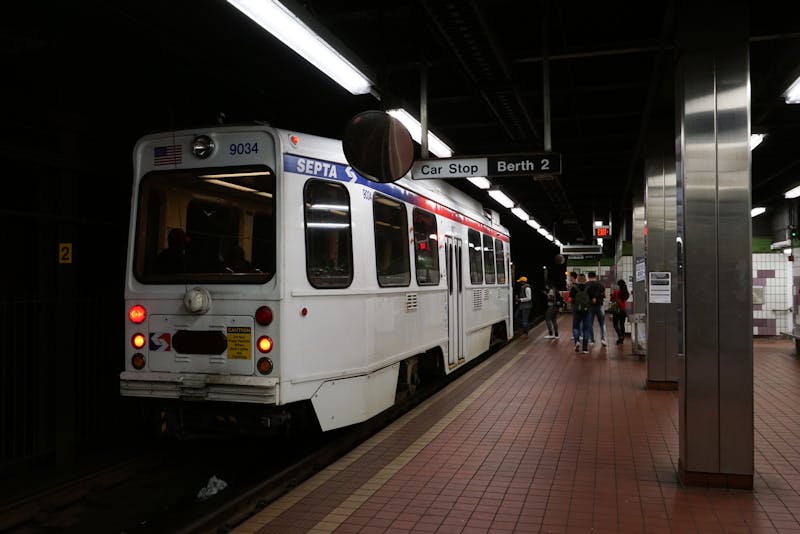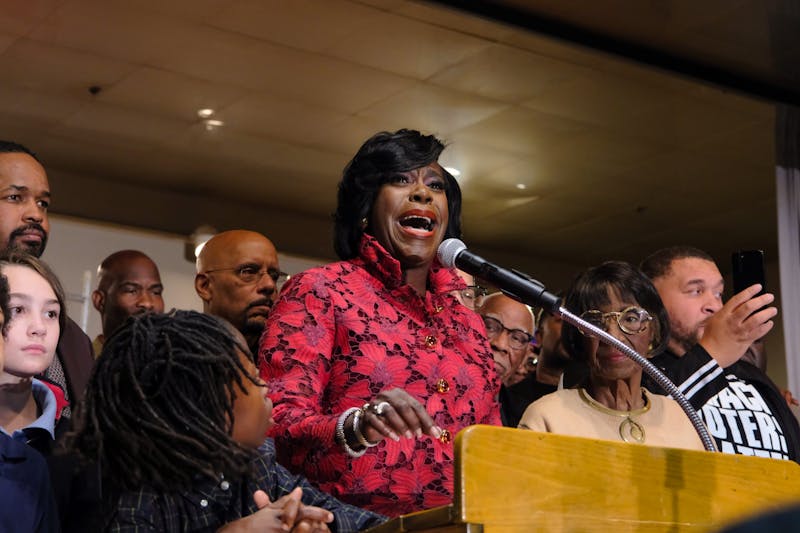
SEPTA is preparing for service cuts and fare increases in the face of a $240 million annual budget gap that threatens future operations.
Pennsylvania Gov. Josh Shapiro’s January proposal is the latest effort to fund SEPTA after a $190 million budget increase initiative fell through, leaving officials seeking a new source of funding. SEPTA has been able to provide regular services without raising fares through federal COVID relief funding, which will be exhausted in April, according to NBC10 Philadelphia.
Shapiro proposed $282.8 million in new state funding for public transit in his upcoming budget, with SEPTA receiving the largest cut, according to the Inquirer. If approved, the proposal would mark the largest increase in state funding for public transit in over a decade. In his second budget address to lawmakers in Harrisburg on Wednesday, Shapiro specifically addressed the public transit funding concerns.
In his proposal, Shapiro called for a $160 million increase in the transit system’s funding, according to the Inquirer. However, this does not fill the entirety of the transit authority’s current $240 million budget gap.
“Investing in and improving our public transit systems is a commonsense way to create good-paying jobs, spur economic development, and help Pennsylvanians reach their destinations safely,” Shapiro said in a statement.
Reports about service cuts and fare increases have incited local communities to also advocate for increased federal support, citing historically underfunding for SEPTA by the state. According to statistics from SEPTA, comparable cities like Boston and New York City spend more per capita on mass transit than Philadelphia with a larger proportion of taxes allocated towards public transit systems, NBC reports.
“With budget certainty, SEPTA can move forward with needed service enhancements and initiatives to make the system cleaner, safer and more reliable,” Richards said in a statement in response to Shapiro’s funding proposal.
In a presentation to the House Transportation Committee last September, SEPTA officials warned of a looming “death spiral” if elected officials failed to take action.
Without additional funding, SEPTA expects up to 30% in potential fare increases and the possibility of cuts to 20% of services across all SEPTA lines, Director of Media Relations Andrew Busch told NBC. According to Busch, cuts will not happen all at once to prevent disproportionate impact on communities. He also noted that SEPTA is running up against a tight timeline with few viable alternatives.
Professor of City and Regional Planning and Electrical and Systems Engineering and UPS Chair of Transportation Megan Ryerson pointed to the implications of the budget cuts.
“Philadelphia works because SEPTA works,” Ryerson said.
College sophomore Rachel Gittleman, who commutes to her job at an elementary school via SEPTA weekly, expressed concerns about the budget cuts, citing the cost of Ubers as well as the unreliability and long wait times for Penn buses as barriers to other forms of transportation.
"I wouldn't know exactly what to do without SEPTA," Gittleman said.
Service cuts and shutdowns would also have a broader effect on city transportation patterns.
Ryerson cited the results of a commuter survey conducted in March 2023, which showed that 72% of Penn employees’ employ public transportation to travel to work as opposed to single-occupancy cars.
U.S. Sen. John Fetterman stands amongst several Philadelphia-based congressional delegates who are urging the Biden Administration to prioritize federal funding for SEPTA, according to the Inquirer. A release from Sen. Fetterman’s office notes the impacts that SEPTA’s collapse would have across Pennsylvania, with the southeast region generating 42% of statewide economic activity. According to Fetterman, SEPTA is an essential service that provides more than 700,000 daily trips throughout the region.
“We are also glad to see the Biden administration open discussion on how to provide continued operating support for large transit agencies, whose recovery has been slower than other industries,” the Pennsylvania delegates said in the letter, addressed to Transportation Secretary Pete Buttigieg.
2016 Penn graduate and Philadelphia Mayor Cherelle Parker and Philadelphia City Council President Kenyatta Johnson also called for Gov. Shapiro to increase SEPTA’s funding in an open letter.
“Without additional investments, SEPTA would be forced to cut service levels and increase fares — setting off a chain of negative consequences for local residents and businesses, the regional economy and over time, Commonwealth tax revenues,” Parker and Johnson wrote.
Service cuts would likely take effect this fall, if they become necessary, SEPTA officials told The Philadelphia Inquirer.
The Daily Pennsylvanian is an independent, student-run newspaper. Please consider making a donation to support the coverage that shapes the University. Your generosity ensures a future of strong journalism at Penn.
Donate











